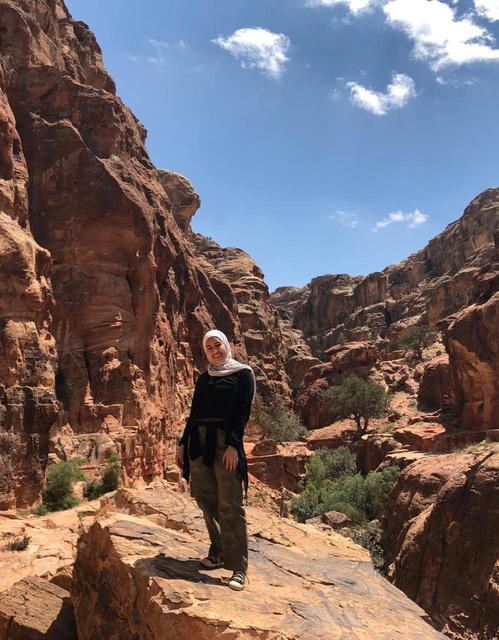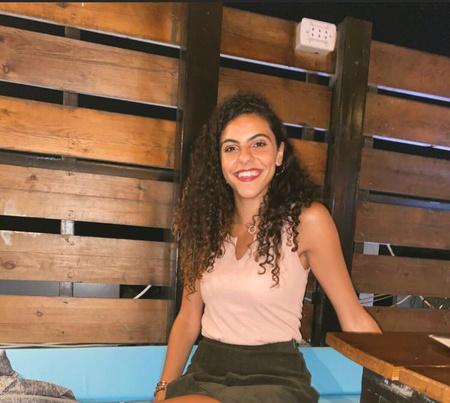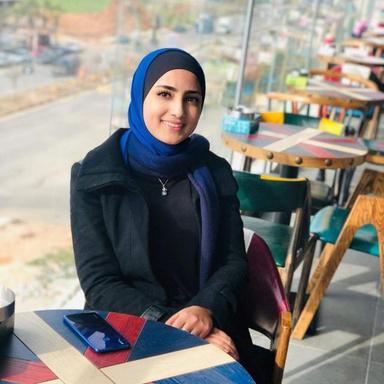
8 minute read
INTERVIEW WITH THE NORP
What is your Standing Committee responsible for?
Advertisement
We provide our members with the tools necessary to advocate for sexual and reproductive health and rights within their respective communities in a culturally respected fashion. This Standing Committee aims to achieve this through capacity building on Comprehensive Sexuality Education and other sexual and reproductive health and rights issues; the exchange of ideas and best practices; drafting policies and working with our external partners in order to implement change on the local, regional and international level.
Focusing on raising awareness regarding Gender Based violence, reproductive health and HIV/AIDS and other STIs as well as directly implementing ideas that allow for a positive change.
1. HIV/AIDS and Other STIs; a national project. 2. GBV project that is currently ongoing. 3. SCORA Exchange 2021.
In your opinion, why should students be educated on Sexual and Reproductive Health and Rights?
This is a vital part of an individual’s health and wellbeing. It is important that women and men live in a community where they feel safe from GBV and have enough information to protect themselves and maintain their reproductive health. (Continued...)

It is also important that women have access to information regarding proper maternal health and any issues they might face.
As medical students who are privy to such information and can arrange for sessions with many helpful and beneficial externals; it is our job to do whatever we can to make that happen.
Finally, what are the biggest lessons you learned from your experience with SCORA from being a volunteer to a National Officer on Reproductive Health?
I learned more about the field I am currently focusing on through our work with various partners and sessions with doctors, as well as the meetings I attended with the international SCORA team. I also improved some important skills through this position; such as time management and organization. Lastly, I met some wonderful people while being the NORA and I am very happy to know them.

What is your Standing Committee responsible for?
The Standing Committee on Public Health (SCOPH) is responsible for addressing public health issues within our community to fulfill our vision of a healthy society. This includes health policies, health advocacy, educational campaigns and much more. SCOPH is also responsible for attaining medical students with the skills and knowledge they require to contribute to their full potential towards the making of healthier communities.
Our main goal for this term is health promotion and education within our society especially amidst this COVID-19 pandemic.
So far we have completed a project about Celiac Disease. The project was an online campaign in collaboration with Dr. Mohammad Rashid and ءﺎﻗﺪﺻأ ﺔﯿﻌﻤﺟ ﻦﯿﻄﺴﻠﻓ و ندرﻷا-ﺢﻤﻘﻟا ﺔﯿﺳﺎﺴﺣ ﻰﺿﺮﻣ However, the project that I am really enthusiastic about will be a regional campaign celebrating WHO’s World Immunization Week 2021. Since the beginning of this pandemic in March 2020, we have been working tirelessly to raise awareness about COVID-19, and now with the development of the vaccine and amidst all the rumors arising, we feel it is important to make an initiative across Jordan and the region. We hope this campaign will clarify the importance of the vaccine and clear any ambiguity.
Public Health issues affect our life on a daily basis. It is crucial to be well informed and educated about the various health issues that we face as this will eventually lead to better health outcomes. (Continued...)

Take diabetes for example; Diabetes is a chronic illness that affects how our bodies turn food into energy. If we are better educated on the symptoms of diabetes then we will have better screening and early detection programs. Early detection means that we can control the disease in its early stages saving the patient from harmful, avoidable side effects, expensive medical procedures and medications, an overall better mental health status and most importantly a better health outcome. This means that there are healthier individuals, less financial burden on our health care systems and better quality of life.
This is why education on Public Health issues extends beyond just a single patient, it affects our health care system, our health care providers and our quality of life.
From being a volunteer to a National Public Health Officer, I’ve found that there's a lot you can do to make the world a better place, and it all starts with you. I've found that there's always space for growth and change, and all it takes is the confidence to take the first step.
What is your Standing Committee responsible for?

SCOME is responsible for medical education; because this is of importance to every medical student as it shapes not only the proficiency of future physicians, but also the quality of healthcare. Our mission is to be the frame in which medical students contribute to the development of medical education. Students convene in SCOME to share and learn about medical education in order to improve it, and benefit from it, on a personal and professional basis. So, we focus on medical education systems, teaching medical skills, medical ethics, and human rights and health systems.
1. Capacity building in SCOME through different activities, projects, and trainings on the local and national level; by cooperating with LOMEs from all universities, and the Coordinator of the TMS ‘Teaching Medical Students’ program. 2. Encouraging member-participation in projects on the regional and international level, as well as hosting projects in cooperation with different NMOs to provide a chance for our members to trade experiences and build connections. 3. Strengthening our work with medical training centers in order to prepare trainers and trainees equipped with the necessary skills and knowledge. 4. We also aim to discuss ongoing issues in medical education, whilst providing the best opportunities for our students by conducting training sessions hosted by medical residents from all over the world.
This term we’re planning on making each project of ours as big as possible, whilst focusing on quality over quantity;
1. ‘Rescue Hands’: a project that provides training courses in medical skills. We finished 3 steps; First Aid, Suturing and Injection, and Casting. We plan on completing more steps and providing advanced medical trainings such as ITLS, and A day in the E.R. 2. ‘SCOME Webinar’ in cooperation with other NMOs. 3. ‘SCOME Camp’: a project highly anticipated by our members. This year it will be conducted in an innovative and exciting way. 4. Courses to provide training certificates to our members like TMET ‘Training Medical Education Trainers’, in order for them to share their knowledge and skills by teaching other students.

In your opinion, why should students enhance their medical skills from as early as their basic years?
Finally, what are the biggest lessons you learned from your experience with SCOME from being a volunteer to being a National Officer for Medical Education?
I believe that a large contributor to skill development stems from a student’s personal effort, for example; in the basic years of medical schools in Jordanian universities, we receive only theoretical courses. And you, as a medical student in your community; even in your basic years, must acquire the basic medical skills. From first-aid, suturing and injections, to advanced courses such as international trauma management for life support (ITLS), and others; all of those will enrich your CV. Here in SCOME, we offer these courses in cooperation with qualified trainers and various organizations, and the participants are given certificates accredited by health organizations and well-known institutions around the world. In addition to that, we launched the TMS ‘Teaching Medical Students’ program. The program works on the following: Analyzing of current situation in medical schools, assessing the quality and needs of medical students, providing learning opportunities through educational activities, such as competency based trainings and workshops with academic quality ensured, and to advocate with the faculties to provide support and work towards the integration of well-structured competency- based programs in curricula.
When I read this question, I remembered Helen Keller's quote: “Character cannot be developed in ease and quiet. Only through the experience of trial and suffering can the soul be strengthened, ambition inspired and success achieved.” Therefore, I have always been trying to create my own experiences and ideas, as well as overcoming the pressures of studying as a medical student. I also learned that we are able to be part of the world of volunteering and make a change in our communities by developing our skills during our university years. Ever since the day I joined SCOME; I went from being a participant, to an organizer, to a leader, to a Local Officer on Medical Education, to a National Officer! Day after day, I felt that I was a part of a big family. A family that has given me the biggest responsibilities, love, and passion for creating ideas, projects, and making a great imprint.









